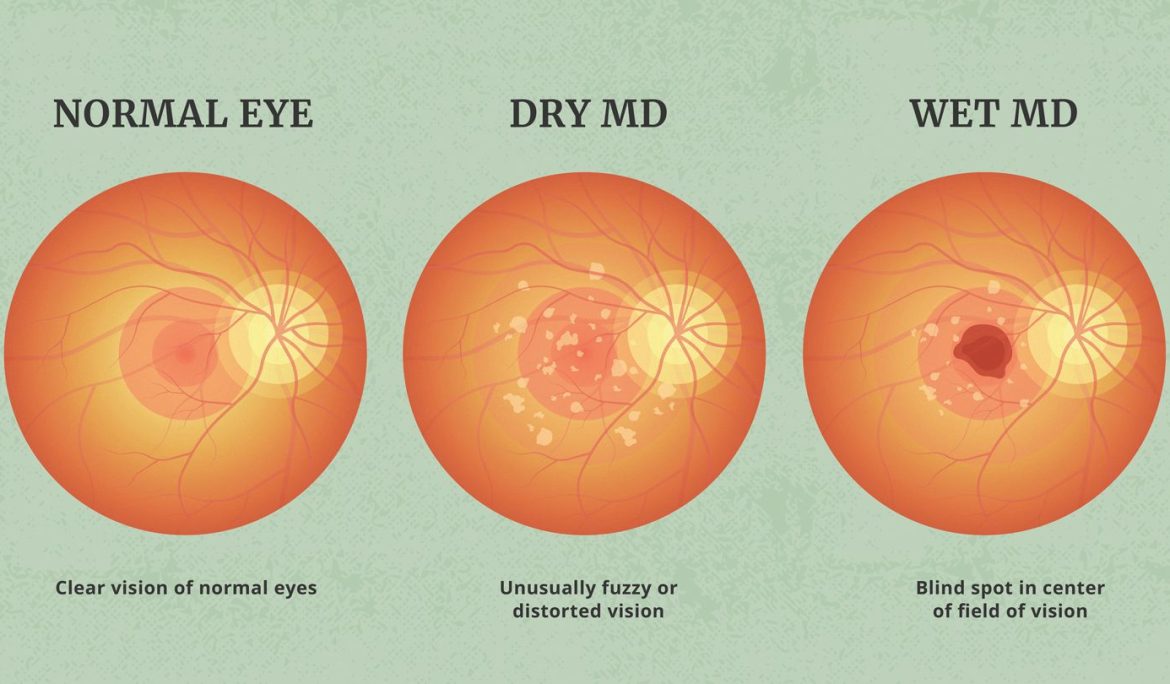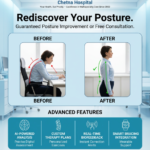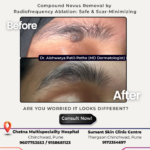Age-related macular degeneration (AMD) is a chronic eye disease and a leading cause of vision loss, particularly among individuals aged 60 and above. At Chetna Hospital, we see many patients affected by this condition, which impacts the central part of the retina (the macula) responsible for sharp vision. While it can be debilitating, early prevention and treatment can slow its progression and preserve eyesight. Here’s a guide on effective strategies for managing and preventing AMD.
What Is Age-Related Macular Degeneration?
AMD comes in two forms: dry and wet. The dry form is more common and progresses slowly, causing gradual vision loss. Wet AMD, while less common, leads to faster deterioration due to abnormal blood vessel growth under the retina. Although there’s no definitive cure, numerous treatments and lifestyle changes can help manage the condition.
Prevention Strategies for AMD
1. Maintain a Healthy Diet
A balanced diet rich in vitamins and antioxidants can reduce the risk of AMD. Studies have shown that nutrients such as vitamin C, vitamin E, zinc, and lutein protect the macula from oxidative damage. Green leafy vegetables, carrots, nuts, and fish rich in omega-3 fatty acids are especially beneficial.
2. Quit Smoking
Smoking dramatically increases the risk of developing AMD. It accelerates the damage to retinal cells due to oxidative stress. Quitting smoking is one of the most effective ways to protect your vision as you age. Many patients have seen improved eye health after quitting this harmful habit.
3. Protect Your Eyes from UV Light
Prolonged exposure to ultraviolet (UV) light can worsen macular degeneration. So, it is crucial to wear sunglasses that provide 100% protection against UVA and UVB rays to safeguard your eyes from harmful sun exposure. Additionally, hats with brims can offer extra protection, reducing direct sunlight exposure to the eyes.
4. Regular Eye Checkups
Frequent visits to an eye specialist are critical, especially for individuals over 50. Regular eye exams allow early detection of AMD, and this can make a significant difference in preserving vision. We recommend comprehensive eye exams annually for early diagnosis and intervention.
Treatment Options for AMD
1. Anti-VEGF Injections
For those with wet AMD, anti-VEGF injections can be a game-changer. VEGF, or vascular endothelial growth factor, promotes the growth of abnormal blood vessels in the eye. By blocking VEGF, these injections reduce blood vessel formation, stopping further vision loss.
Many patients have experienced substantial improvements with this treatment.
2. Laser Therapy
Laser therapy can help treat wet AMD by sealing leaky blood vessels that damage the macula. This procedure, though not a cure, slows down the progression of vision loss. Our experienced ophthalmologists use advanced laser technology to offer safe and effective treatments.
3. Photodynamic Therapy
This treatment involves the use of light-sensitive drugs activated by a laser. The drug targets abnormal blood vessels in the eye, minimizing damage to the surrounding tissues. While photodynamic therapy may not fully restore lost vision, it can halt further deterioration.
4. Supplements and Medications
For patients with dry AMD, the Age-Related Eye Disease Study (AREDS) formula is recommended. This combination of antioxidants and minerals has been shown to slow the progression of AMD. We advise patients on the right dosage and usage based on their condition.
Lifestyle Changes to Manage AMD
1. Regular Exercise
Moderate exercise, such as walking, can reduce the risk of AMD by improving overall health and circulation. Staying active ensures proper oxygen and nutrient delivery to the eyes, supporting macular health.
2. Monitor Your Vision
Patients with AMD should regularly check their vision using an Amsler grid. This tool helps detect any changes in vision early, so treatments can be adjusted quickly. Early detection of symptoms can significantly improve outcomes.
3. Manage Other Health Conditions
Conditions such as high blood pressure, diabetes, and high cholesterol can increase the risk of AMD. Controlling these through medication, diet, and lifestyle changes can help manage your eye health as well. Our specialists at Chetna Hospital offer comprehensive care plans for patients with AMD and other underlying conditions.
Conclusion
Age-related macular degeneration doesn’t have to lead to blindness. By adopting preventive strategies and seeking early treatment, patients can protect their vision and maintain a good quality of life. At Chetna Hospital, we are committed to providing top-tier care for AMD with the latest treatments and personalized guidance. If you or a loved one is concerned about AMD, schedule an appointment with our expert eye specialist today.
Your vision is our priority!













